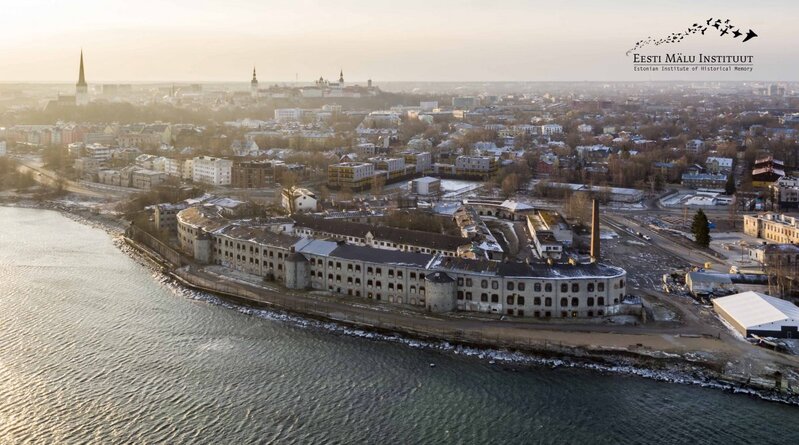Other participants were: Dr. Gunars Nagels and Prof.em. Dr. Valters Nollendorfs of the Museum of the Occupation of Latvia, Dr. Monika Kareniauskaite and Ramune Driaucunaite of the Genocide and Resistance Research Center of Lithuania, and Dr. Anna Kaminsky and Dr. Sabine Kuder of the Federal Foundation for the Study of Communist Dictatorship in Eastern Germany. The hosts were Sandra Vokk and Dr. Meelis Maripuu, members of the Board of the Estonian Institute, as well as Martin Andreller, researcher and curator and Sergei Matlev, PR and cooperation manager at the Institute. Thomas Hioo, head researcher at the War Museum and Member of the Board of the Estonian Institute was also present.
This was the first meeting among the closest partners of the Estonian institution devoted exclusively to the project of the establishing an international museum and research centre of the crimes of communism, which is to be held in the Patarei complex – a former naval fortress and a Soviet prison (a visit to this site took place before the meeting). The contest for the interior design of the museum has already been announced the deadline being 24 March this year. The renovation works should take several years, and would entail the financial support of the Estonian government. The main ideas of the planned exhibition would be the presentation of communist crimes in Europe and other parts of the world before and in the aftermath of the Ribbentrop- Molotov pact of 1939, against the background of the Patarei’s history. The accompanying research centre is intended to organise and curate international research work in the above-mentioned fields.
The first task involving foreign partners would be the preparation of a prototype version of the exhibition that could be presented around Europe, thus promoting the idea of the institution. The designing process of the exhibition would involve curators from partner organisations, with the Estonian side coordinating and supervising the work. Creating a network of researchers in the field would accompany the exhibition project.
The participants to the meeting agreed to appoint curators and candidates for the Museum’s Advisory Board from among their employees. The representatives of the IPN also invited the Estonian colleagues to visit Poland’s museums concerning the 20th century history, such as the Museum of the Second World War or the POLIN Museum of the Polish Jews, to see how they approach the issue of talking about recent historical events taking into account the specificity of different age groups and nationalities. The proposed tour would be organised jointly by the IPN and the Polish ministries (the Ministry of Culture and the Ministry of Foreign Affairs.)
The meeting ended with a joint statement in support for the Museum and International Research Centre of Crimes of Communism in Tallinn, signed by all parties to the meeting.
